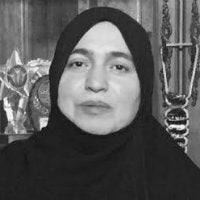 Expertise, insight, patience, and empathy. One-to-one consultation and collaborative discussion. An anthology of academic backgrounds and life experiences. It is easy to understand why this past academic year 613 graduate student visits were made to one of sixteen part-time Writing Fellows at the Graduate School Writing Center.
Expertise, insight, patience, and empathy. One-to-one consultation and collaborative discussion. An anthology of academic backgrounds and life experiences. It is easy to understand why this past academic year 613 graduate student visits were made to one of sixteen part-time Writing Fellows at the Graduate School Writing Center.
When you talk to any of the Fellows, they share a love of writing, and they would like others to master it, as well. "We don’t simply want to produce better documents," says Nathaniel Gailey-Schiltz, "but transformative writers." Adds Thomas McCloskey, "We listen kindly, then follow the campsite rule – leave each paper better than we found it. Ideally, this means students walk away with both micro-suggestions and broad advice that they can apply to future work."
The Writing Fellows are as diverse as the graduate students they serve. Some are international, while others hail from Oregon, Iowa, New York, and Tennessee. Raino Isto and Thomas McCloskey were Peace Corps volunteers in Albania and Ukraine. Clark J. Lee is a lawyer by training. They have tutored in various programs, worked in political campaigns, and participated in campus groups. And they share a passion for the scholarly path.
"What interested me about becoming a Writing Fellow was the chance to use my previous experiences in the life sciences as well as admissions to assist clients with writing concisely and efficiently to get their message across," says Nina Daoud. "Through this process, I have also become more cognizant of how to improve my own writing, thus allowing me to become more critical of my own scholarship."
Professional Development Opportunity
Think of it this way. You are in the middle of your doctoral program, and you get a chance to work for the Graduate School Writing Center and make a difference. Not only that, it is a professional development opportunity that cuts both ways. Clients walk away with concrete feedback on their writing and a perspective on the academic journey. In turn, Fellows have a chance to practice and enhance their communication, networking, teaching, active listening and interpersonal skills.
"There are many times that I have tried to express something, but the client doesn’t understand what I mean. That ability to rephrase and understand an issue from various angles, so that I can explain that same concept to someone else, is something that will serve us well in just about anything we do," says Nathaniel Gailey-Schiltz.
Eager to help students, the Writing Fellows consult with clients by the same general strategy: first a conversation about goals for a particular session, a read-through of any prepared manuscript or document followed by feedback, and a discussion about challenges. The focused meeting ends with a synergetic discussion about insights for moving forward. "Typically, my main piece of advice is to be not be afraid of fixing small problems. By doing so, students learn how to change they way they write, and therefore, fix the problem themselves. A discussion can also help demystify the writing process and empower both client and tutor," says Raino Isto.
The most common challenge, according to Nina Daoud, "is determining how to best organize writing for large projects, such as dissertations or literature reviews." Adds Nabila Hijazi, "Then there are different issues depending on discipline and the lack of proper writing training, coupled with cultural issues having to do with writing style, especially for multilingual graduate students." In addition, clients are concerned about structure, logic, continuity, transitions, voice, grammar, confidence, and clarity of argument. "It really helps," says Wendy Laybourn, "to engage in peer review prior to coming to the Graduate School Writing Center. A writing group can really help with brainstorming ideas and receiving feedback from others." One of her clients, Funmi Makinde, a recent graduate of the School of Public Health, says "My experience with the writing center was fantastic. I received the attention and listening ear that I had hoped for. I always walked away feeling like my writing had improved significantly."
Each spring, the Center is on the hunt for a handful of new Fellows, as some graduate. For any aspiring Fellow, the current group advises openness, flexibility, empathy, and a chance to help a colleague on the challenging academic road. "The Writing Fellows have been instrumental in contributing to an important conversation on UMD campus about the value of writing and communication in a graduate degree," concludes Dr. Linda Macri, Director of the Graduate School Writing Center.
(By Anna De Cheke Qualls)(Photo credit: Writing Fellow, Nabila Hijazi)
